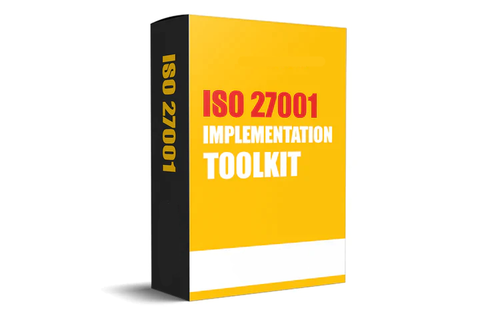Understanding The Expenses Of ISO 27001 Certification
Today's digital landscape is rapidly changing, and protecting sensitive information has become an important priority for all organizations. Cyber threats and data breaches are on the rise, which highlights the importance of robust information security measures. ISO 27001 is a globally recognized information security standard that provides organizations with a systematic way to create, implement, maintain, and continuously improve an Information Security Management System (ISMS). The ISO 27001 certification is a sign of an organization's dedication to maintaining confidentiality, integrity, and availability of their information assets. The cost of certification is affected by a number of factors.

Cost Factors Of ISO 27001 Certification
There are several Cost Factors Of ISO 27001 Certification, including:
1. The ISMS Is A Complex System With A Wide Scope
The scope of the ISMS of an organization is a key factor in determining certification costs. The cost of ISO 27001 certification increases with a broader scope that includes a wider range of assets, processes, and systems. Due to the complexity of ISO 27001, large organizations may have higher costs.
2. Gap Analysis And Risk Assessment
Before embarking on ISO 27001 certification, many organizations conduct a comprehensive Gap Analysis and Risk Assessment. These assessments are used to identify vulnerabilities, risks, and improvement areas. These activities are important for the ISMS, but they come at a cost. For example, engaging consultants with experience to help facilitate the process.
3. Training And Resources For Staff
To create a culture of security in an organisation, it is necessary to educate and train employees at every level. Staff training costs can include programs that educate employees on information security best practices, as well as specialized training for personnel who are responsible for ISMS management and implementation. This investment will ensure that the staff is well-equipped to help the ISMS succeed.
4. Hire External Consultants
Many organizations hire external consultants who are experts in ISO 27001 to guide them through certification. Consultants provide valuable insight, experience, and a structured implementation approach. Although hiring consultants increases the cost, they can often speed up the certification process and improve the quality of an ISMS.
5. Documentation And Policies
ISO 27001 certification requires a comprehensive documentation set. It includes the creation of policies, procedures, and work instructions that describe how an organization manages its information security. Costs are based on the time required to review and finalize documents in accordance with ISO 27001 standards.
6. Technology And Security Measures
In order to address vulnerabilities and risks identified, organizations may have to invest in security and technology measures. These costs could include firewall installations, intrusion detector systems, encryption software, access controls, and other security hardware and software. The cost depends on the existing technology infrastructure of the organization and the extent to which it needs to be enhanced.
7. Physical Security Enhancements
ISO 27001 is primarily focused on digital information security. However, physical security measures also play a vital role. Physical enhancements, such as security cameras and biometric access control, may be required depending on the organization's operation.
8. Auditing And Certification Costs
The auditing process accounts for a significant part of the costs associated with ISO 27001 certification. Organisations hire certification bodies (CBs) who conduct audits in order to determine if the ISMS is aligned with ISO 27001 requirements. The cost includes both Stage 1 audits and Stage 2 auditors.
9. Continuous Monitoring And Maintenance
It is important to note that certification is not an achievement. It requires continuous efforts to ensure compliance and improve the ISMS. This includes conducting internal audits and management reviews and implementing updates in response to changing security landscapes and organizational needs.
10. Time And Resources Commitment
The time and resources required to implement ISO 27001 and prepare for audits are significant. This commitment may impact the daily operations of an organization and lead to increased expenses as staff devote time to ISMS tasks.
11. Miscellaneous Expenses
During the ISO 27001 process, unexpected expenses can arise. This can include responding to emerging security incidents or addressing unexpected vulnerabilities.
12. Organization Size And Industry
The industry and size of the organization have a significant impact on certification costs. Compliance is more difficult for larger organizations that have complex operations. A tailored ISMS may be more expensive for industries with strict regulatory requirements or increased security concerns.
13. Cost Savings & Long-Term Benefits
Although the initial costs of ISO 27001 Certification might seem high, you should also consider the benefits over the long term. ISO 27001 certification can improve an organization's security posture and reduce the risk of data breaches. It also fosters customer confidence, which could lead to cost savings.
Conclusion
ISO 27001 certification costs are influenced by many factors. Each factor has a different impact on the total investment. Organizations that are considering certification should consider these factors carefully, get quotes from service providers and create a budget that includes all possible expenses. ISO 27001 certification is a strategic investment that will benefit your organization in terms of information security. It also has a wide range of benefits, including financial ones.



